Rabbi Avraham Yeshayahu Stern: "Amidst Hundreds of Kohanim, I Began to Weep. The Atmosphere Was Electric"
Fifteen words of divine blessing, and hundreds of Kohanim together imparting this blessing to the people in the fields: Mass gatherings for the Priestly Blessing have been held in Jerusalem for nine years. Rabbi Avraham Yeshayahu Stern shares what's behind the initiative and the long journey the blessings have taken since then.
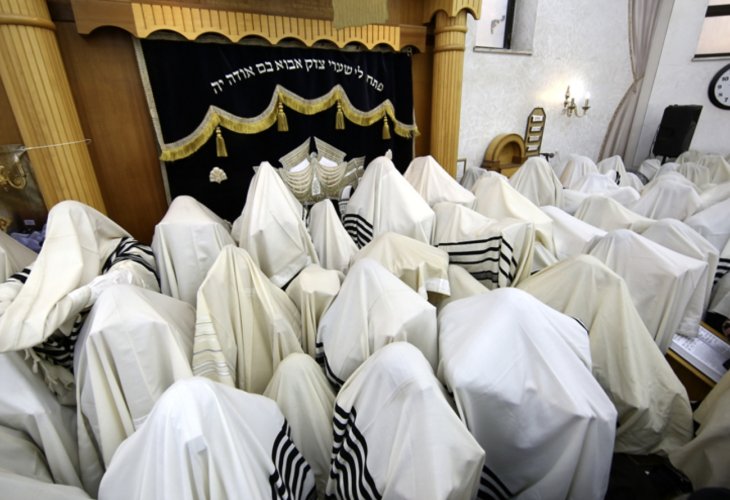 (Photo: Ezra Landau)
(Photo: Ezra Landau)The mass gatherings for the Priestly Blessing have been held in Jerusalem for nine years. Rabbi Avraham Yeshayahu Stern shares what's behind the initiative and the long journey the blessings have taken since then. Even this coming Shabbat, Rosh Chodesh Av, the yahrzeit of Aaron the Kohen, the extraordinary gathering will take place as his descendants, the Kohanim, bless the people of Israel with love.
The synagogue is already packed, and more people continue to arrive. More and more Jews are crowding in, waiting patiently. Many have already prayed Shacharit, yet no one is willing to leave the crowded synagogue. Their faces show anticipation and great excitement, and their gaze is attentive.
From an outsider's perspective, it isn't a holiday or Chol Hamoed. It's an ordinary day, the 12th of Av, yet the synagogue is packed, and everyone is waiting for the moment when the signal is given.
Then the moment arrives. Hundreds of Kohanim make their way among the worshippers, remove their shoes, and stand by the Ark. They wrap themselves in their *tallitot* and extend their hands. The blessing resonates with hundreds of voices, and the vibration fills the air: "May He bless you," the chazzan proclaims, and hundreds of Kohanim plead in unison: "May He bless you!" Hundreds, perhaps thousands, of Jews close their eyes, seeking to become vessels to receive the divine abundance, and the melody plays and rises above their heads. Hundreds of Kohanim join together for the Priestly Blessing, with the Shechinah hovering above the heads of the multitudes gathered.
The mass Priestly Blessing is a special event initiated by Rabbi Avraham Yeshayahu Stern of Jerusalem. Not just one or two, but dozens and hundreds of Kohanim attend the special gatherings he organizes in synagogues in Jerusalem from time to time.
The Beauty of the Commandment
We approached him and asked: What's the point of gathering as many Kohanim as possible for the Priestly Blessing?
"There is a known halachic beautification," says Rabbi Stern. "Hearing the Priestly Blessing from at least two Kohanim together makes it of Torah authority. If only one Kohen ascends to bless, the chazzan does not announce "Kohanim" beforehand. However, there's an additional insight I heard from my teacher and master Rabbi Chaim Kanievsky shlit"a, that each additional Kohen beyond the two is a beautification of a Torah-level mitzvah."
This insight came to Rabbi Stern the year after his father's passing. "It's customary for children to honor the deceased by receiving the 'Maftir' aliyah throughout the first year after passing. In those days, and to this day, I prayed in a large synagogue in my neighborhood, which had many Kohanim who ascended every day.
"Regardless of the Kohanim, I wasn’t always given the Maftir aliyah at every prayer. Each time I offered to pay for the aliyah but the synagogue manager made his own decisions and shared the Maftir with other congregants. Some people exert themselves and go from one minyan to another until they find one where they can receive the Maftir, but I did not do that and remained in my regular prayer place. A friend approached me in astonishment: 'R' Avraham Yeshayahu, how can you continue praying here without receiving Maftir? You are close to Rabbi Chaim shlit"a, known to be strict about Maftir during the first year after a passing. How do you forgo Maftir?'
"Not knowing what to reply, I decided to visit Rabbi Chaim and ask him directly. Should I pray in a synagogue with many Kohanim or find a minyan where I can receive Maftir? Rabbi Chaim immediately responded: 'It's certainly more important to beautify with Kohanim than with Maftir. There's no obligation to receive Maftir each time, but beautifying the Priestly Blessing is more important.' Moreover, Rabbi Chaim emphasized, 'Each additional Kohen joining the blessing beyond two is a beautification at the Torah level.' I returned with this clear answer to my friend, who didn't believe me and consulted Rabbi Chaim himself, receiving the same answer. Since then, he also stayed at the synagogue during his mother's year of mourning, even though he didn’t always receive Maftir."
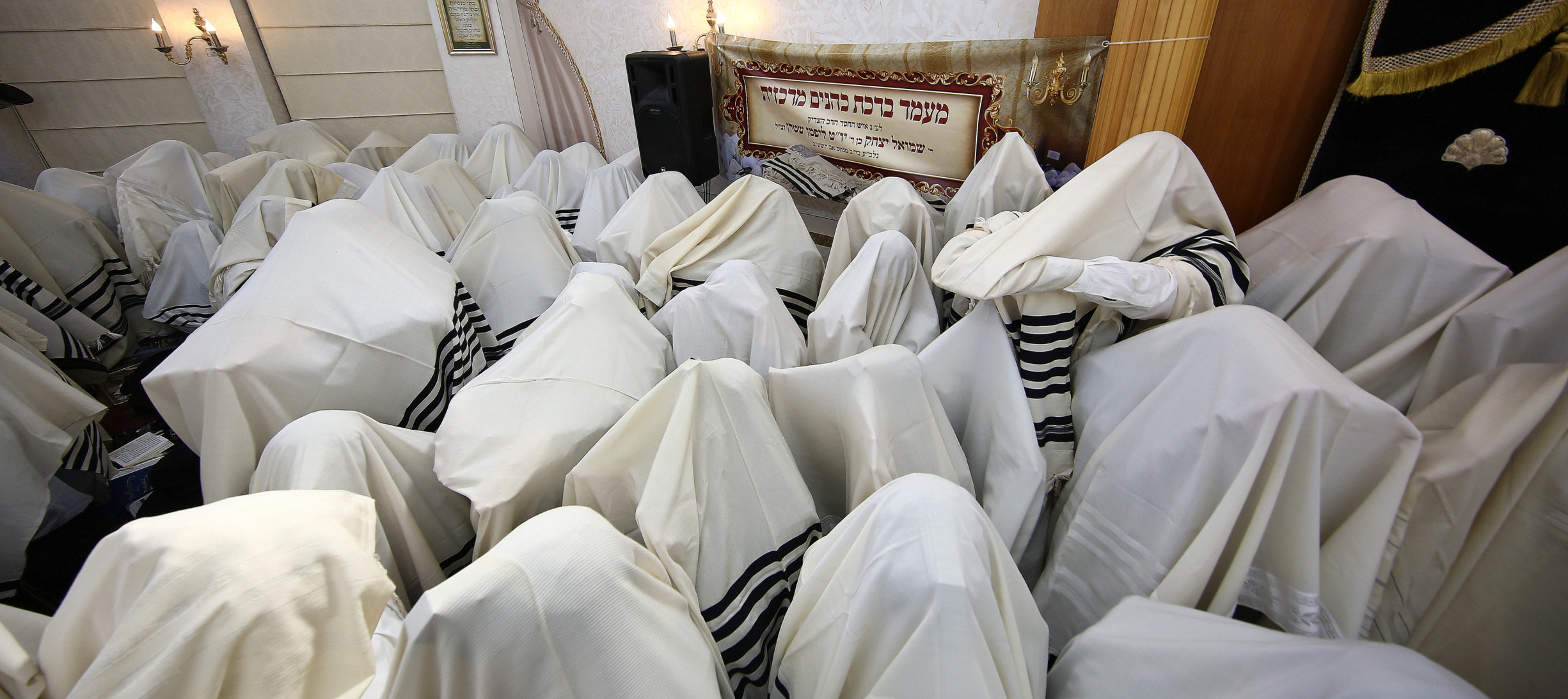 (Photo: Ezra Landau)
(Photo: Ezra Landau)Beloved Commandment
It turns out that this innocent halachic question acted as a catalyst for a new initiative that emerged at the end of Rabbi Stern's year of mourning for his father:
"Approaching the first yahrzeit of my father, my brother and I wanted to do something special for his soul's elevation. It's known that the yahrzeit is also a day of judgment for the deceased, reviewing anew their deeds and those of their descendants in this world. Therefore, people fast, pray, and increase merits for the departed. We pondered what merits we could achieve, remembering how our father cherished the Priestly Blessing, going to lengths to beautify it. He would approach the Kohanim with awe to listen closely and obtain more of the bounty. Although the blessing even reaches 'the people in the fields,' as stated by our sages, there's a matter of standing close to the Kohanim during the blessing. Rabbi Eliyahu Lopian zt"l would also open his hands, like receiving charity, as it's a great time to receive abundant blessing. From a young age, we saw how beloved this commandment was to our father. When he traveled abroad, where the Priestly Blessing is not recited daily, he would ask Kohanim in the Land of Israel to have intent for him during the blessing.
"That same year, after understanding the significance of the Priestly Blessing from many Kohanim, we thought to organize a minyan with many Kohanim blessing together. I consulted Rabbi Chaim Kanievsky again and asked if there was significance in doing this. He confirmed there was tremendous significance and that it elevated the soul of the deceased and benefited the public. The more Kohanim, the more remarkable the beautification of the mitzvah, not to mention the greater likelihood there are properly lineage-qualified Kohanim among the blessers. In these words, Rabbi Chaim expressed, 'There's no greater gift you can send your parents in the World Above than such a adorned Priestly Blessing. It’s a tremendous merit, both to bless as a Kohen and to come and be blessed.'
That marked the beginning of the unique initiative: In that first year, Rabbi Stern called dozens of Kohanim, imploring them to join the prayer minyan. The Kohanim were surprised by the original initiative but agreed to come to the stated minyan.
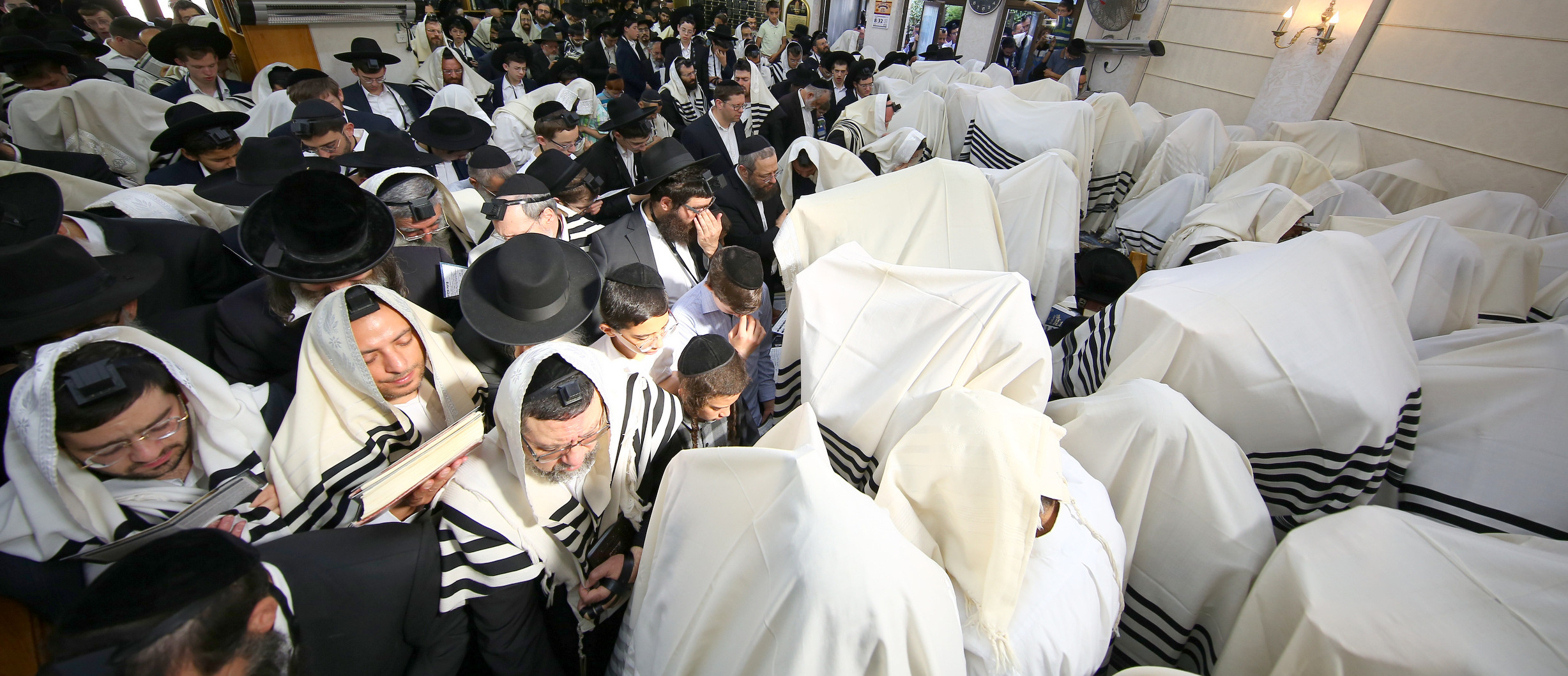 (Photo: Ezra Landau)
(Photo: Ezra Landau)In that first year on the father's yahrzeit, 20 Kohanim prayed at that minyan. The event was very emotional, and many Kohanim would later tell Rabbi Stern, with regret, that had they known about the event, they would have come too.
"Seeing how beloved the mitzvah was to the public, we continued and did the same at the next yahrzeit, with about 40 Kohanim attending. Subsequently, we advertised in the neighborhood and local newspapers, and hundreds of Kohanim came. Later, requests arrived to expand the initiative not just for our father's yahrzeit on the 12th of Av, but to do the same at other significant times. People cherished the mitzvah exceedingly, regretting they were on vacation and not always in the neighborhood. So indeed, we added and organized a mass Priestly Blessing event on the 1st of Av, the yahrzeit of Aaron the Kohen, and then for my grandfather's yahrzeit, and later during Chol Hamoed Sukkot and Passover."
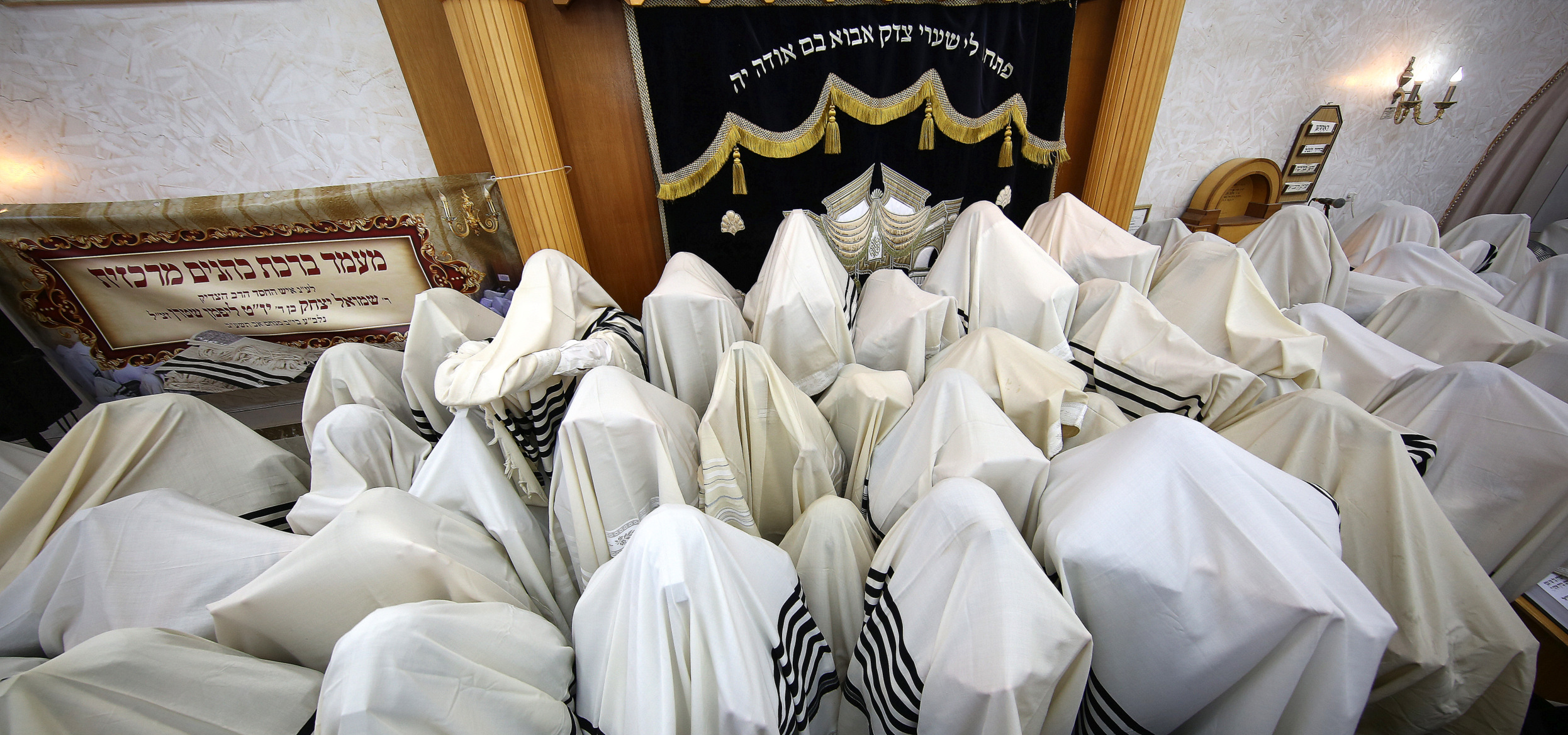 (Photo: Ezra Landau)
(Photo: Ezra Landau)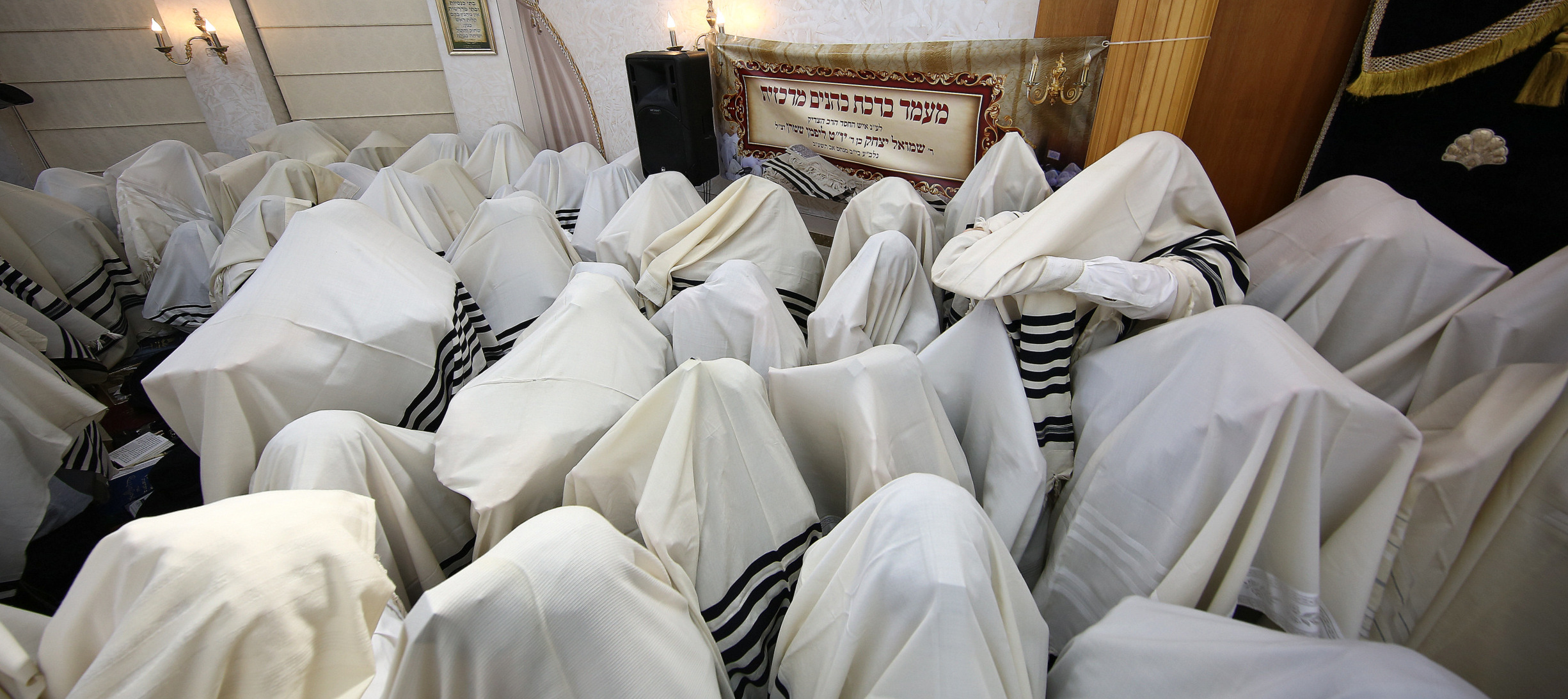 (Photo: Ezra Landau)
(Photo: Ezra Landau)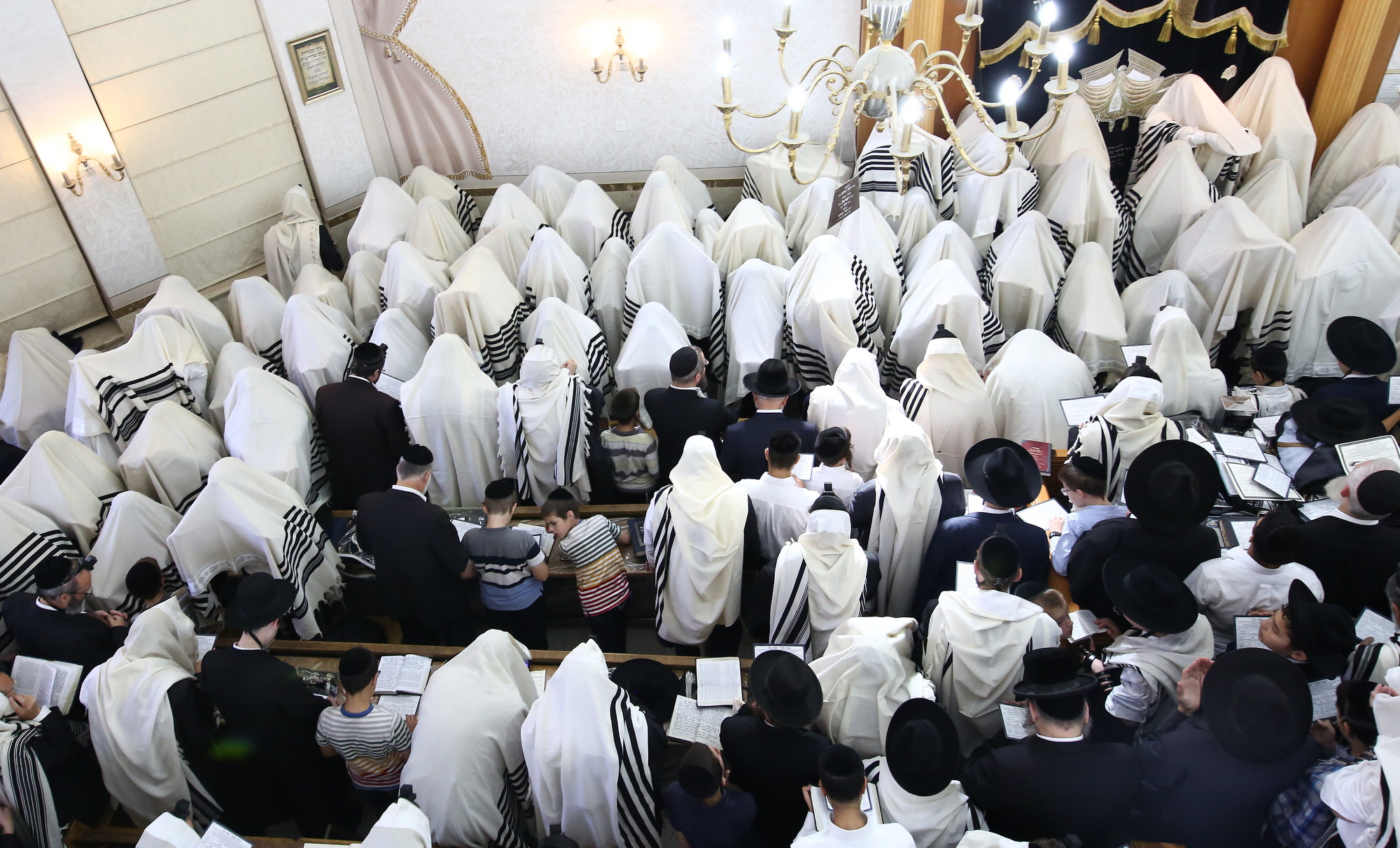 (Photo: Ezra Landau)
(Photo: Ezra Landau)"Favor Those Who Spread Their Hands"
People come and return and come again occasionally, and the events keep growing. Rabbi Avraham Yeshayahu Stern organizes a mass blessing event in his neighborhood—Har Nof in Jerusalem, and simultaneously at the synagogue in the Ramat Shlomo neighborhood in Jerusalem.
"We conduct two large blessing events on our father's yahrzeit, receiving double and triple blessings then. But at other times, we hold one large Priestly Blessing, attracting crowds from all city parts, even from all over the country. Hundreds of Kohanim come to bless, and around 1000 people seek blessings. Before Covid-19, we held the prayer events in a large neighborhood synagogue, but the crowding and pressure were intense, 15 minutes before prayers people were already coming to secure a spot close to the Kohanim to be blessed with all the good. Who is like Your people Israel. During Covid-19, we knew it's impossible due to the danger and conducted the event outdoors. This year, after noticing the difference in great crowding, we decided to hold the event in a spacious hall, ensuring the place accommodates everyone without taking any risks."
Even with Covid-19 restrictions, the event took place: "We held a demonstration," Rabbi Stern smiles, "and it was completely legal. I saw the demonstrations in Balfour being held day after day with police approval and wondered why our part should be less favored. I approached the police and requested permission to demonstrate. 'What are you demonstrating for?' asked the officers. I told them I want to pray and tear the decree from us, plus I'm pained by the discrimination against the Haredi public who aren't allowed to pray, and that's why I'm demonstrating. The commander approved, instructing his officers that we couldn’t be stopped according to the known Supreme Court ruling on demonstrations. Indeed, I published notices inviting Kohanim and worshippers to a legal protest on the street. The notices were unconventional, and many smiled when they saw them."
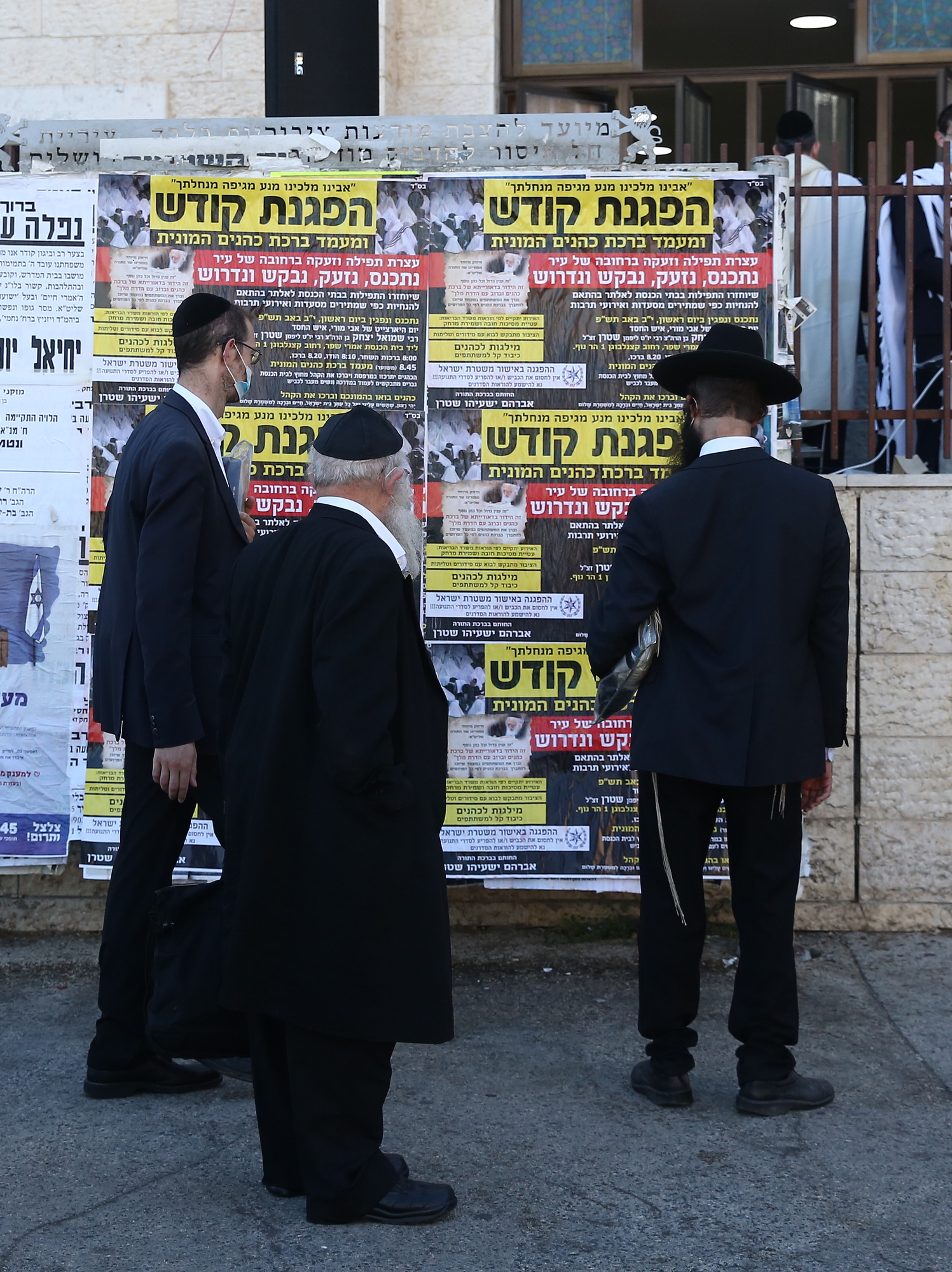 (Photo: Ezra Landau)
(Photo: Ezra Landau)"The main thing was, we made the mass blessing event even during the Covid-19 year: we gathered on the street, all with masks and distances according to regulations, and together heard the Priestly Blessing, receiving blessings from the source of all blessings. The blessing rang through the street, and people stood on rooftops, moved by the eternal words. In this regard, Maran Rabbi Chaim Kanievsky said one of the reasons Eretz Yisrael suffered less from Corona is here, in the holy land, we merit the Priestly Blessing each day, and the blessing 'May He bless you and guard you' serves as a protection for dwellers of the land against the rampant virus."
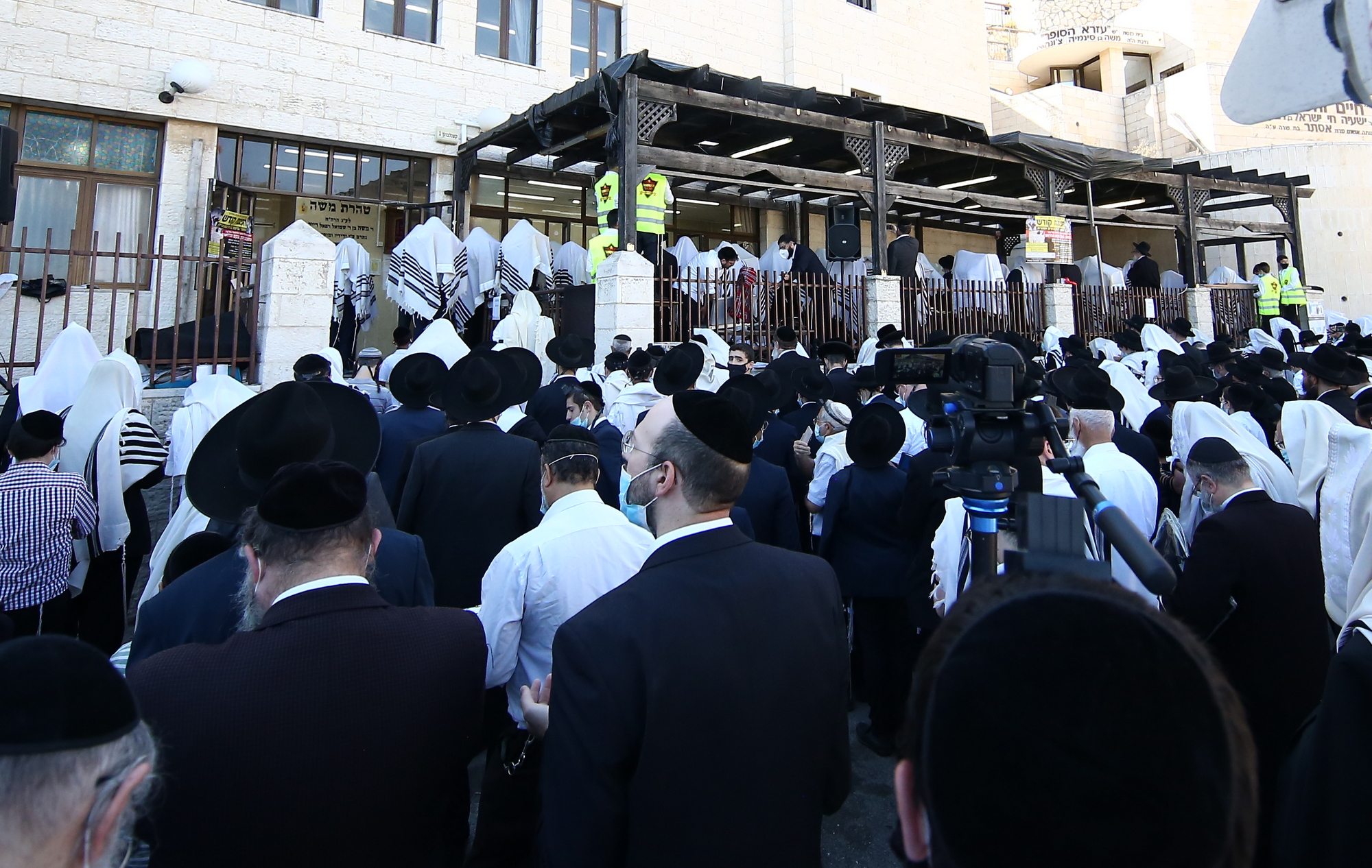 (Photo: Ezra Landau)
(Photo: Ezra Landau)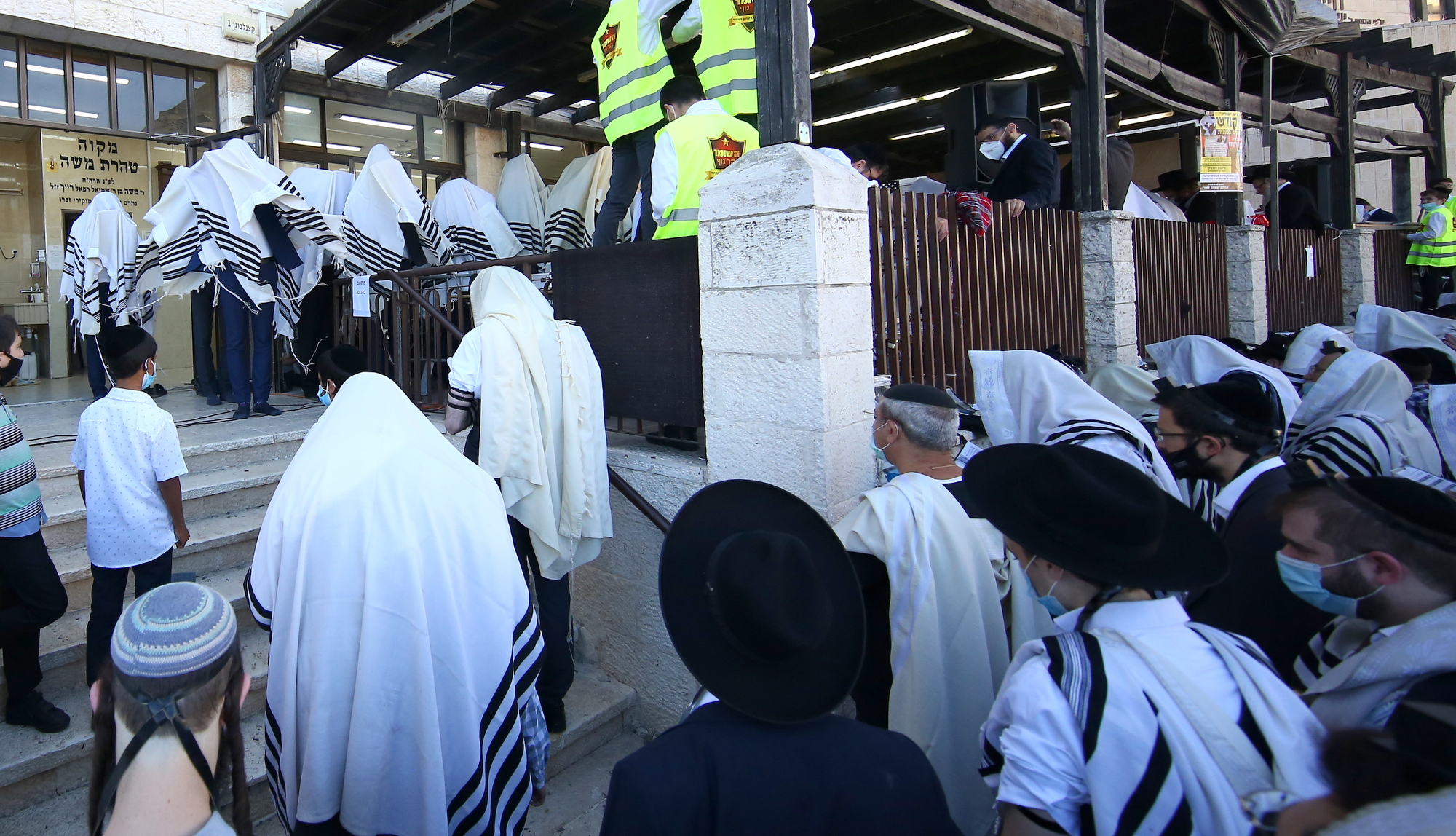 (Photo: Ezra Landau)
(Photo: Ezra Landau)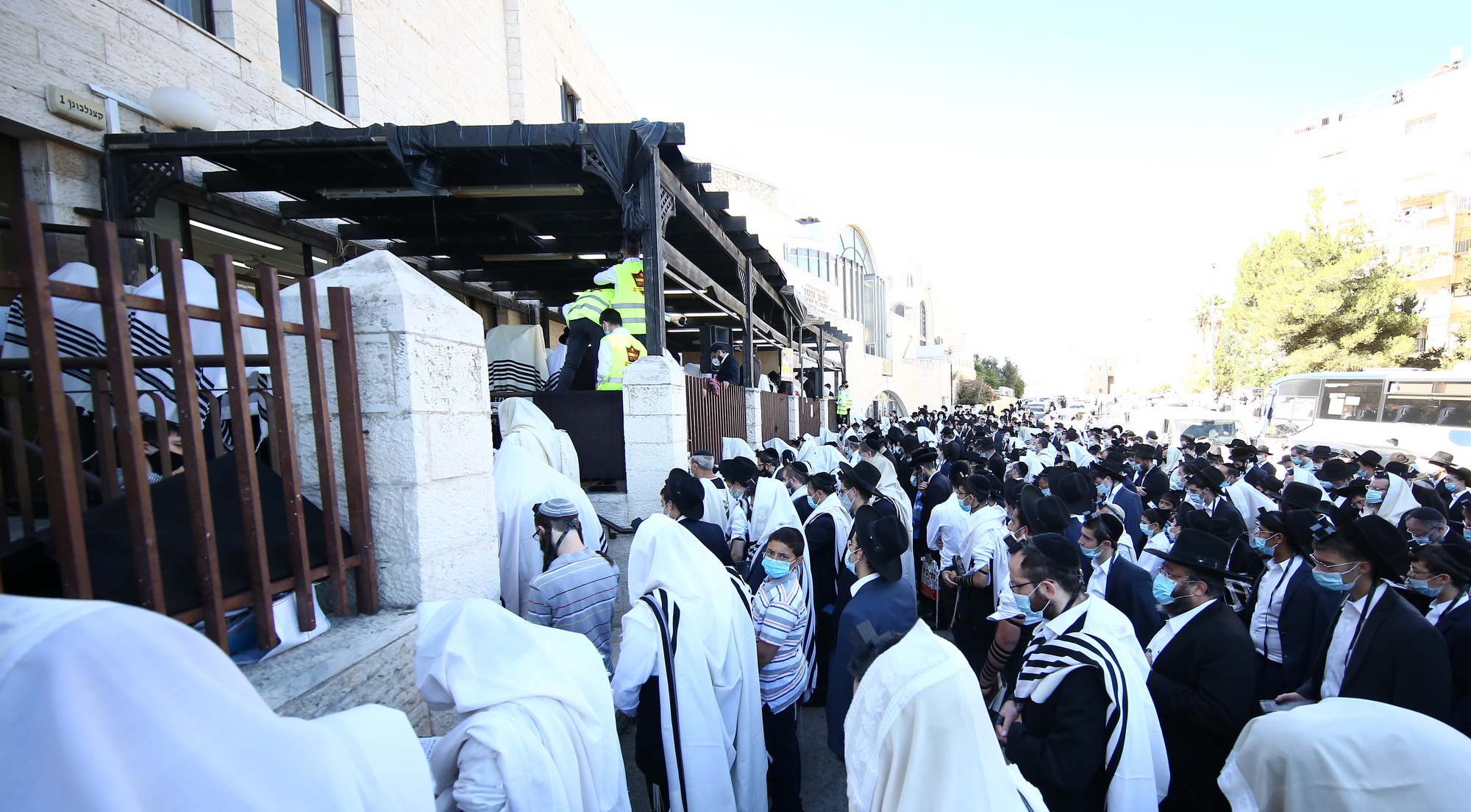 (Photo: Ezra Landau)
(Photo: Ezra Landau)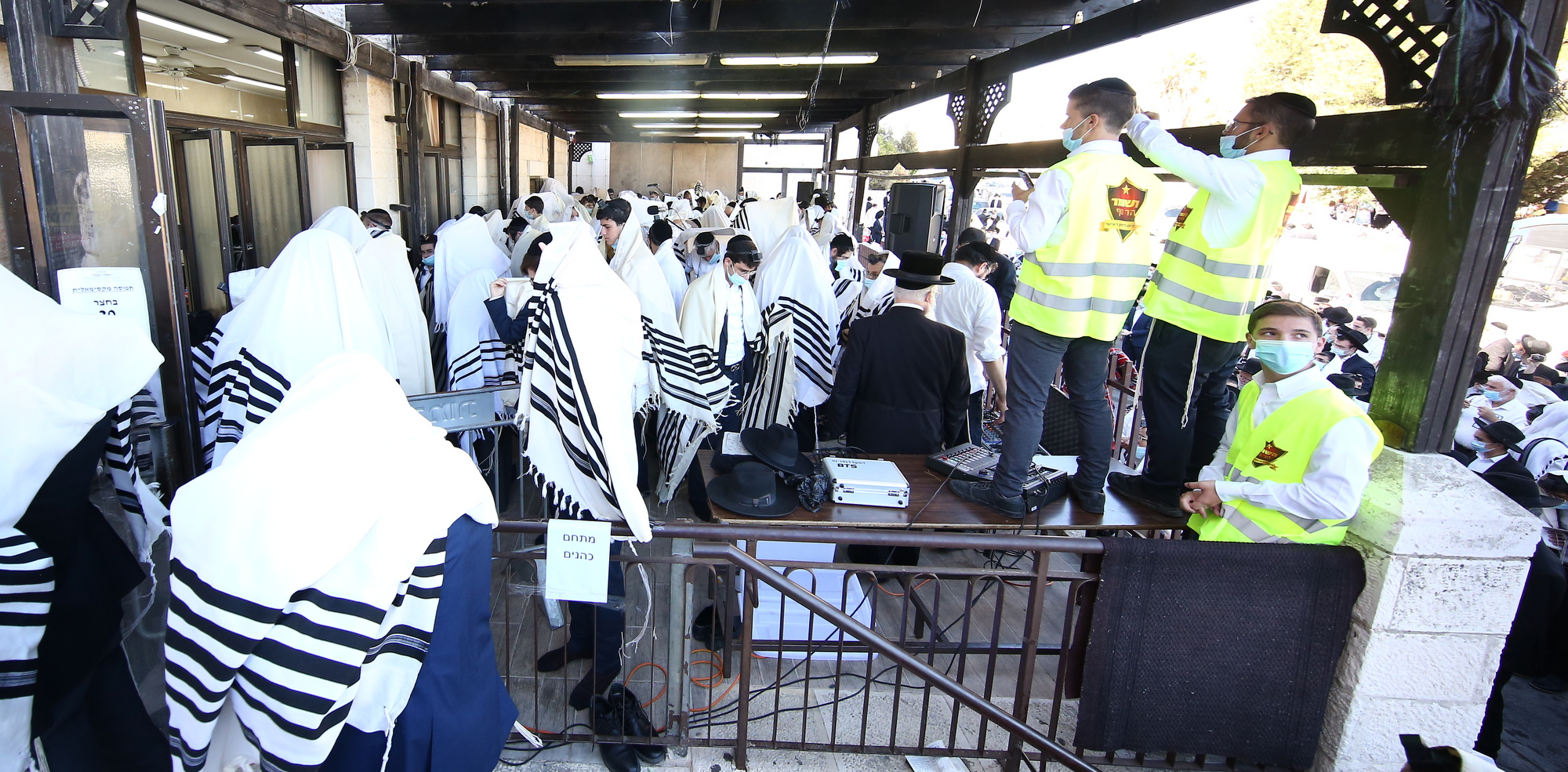 (Photo: Ezra Landau)
(Photo: Ezra Landau)The Shechinah Above the Kohanim
Over the years and through devoting attention to this field, Rabbi Stern encountered many sources highlighting the Priestly Blessing's greatness. The Brisker Rav states that the only explicit source in the Torah for the blessing power in someone of flesh and blood is solely regarding the Kohanim. Hashem promises, 'They shall put My name on the children of Israel... and I shall bless them'; the power of blessing has transferred to the Kohanim. They are the conduit through which the blessing extends to the people of Israel. There’s no need to seek a particularly worthy and pious Kohen; rather, every Kohen from bar mitzvah age can serve as a vessel transmitting the divine blessing. The Kohen doesn’t bless—Hashem himself blesses through his words."
Rabbi Stern quotes the words of our sages in the Midrash (Bamidbar Rabbah 11:2): "When Hashem said to Aaron and his sons, 'Thus shall you bless the children of Israel,' the Israelites said to Hashem, 'Sovereign of the Universe, You instruct the Kohanim to bless us, but we only need Your blessings and to be blessed directly by You, as it says (Deuteronomy 26:15), 'Gaze from Your holy abode, from the heavens.' Hashem replied, 'Although I instructed the Kohanim to bless you, I stand with them and bless you.' Therefore, the Kohanim extend their hands, indicating that Hashem stands behind them. Thus, it says (Song of Songs 2:9), 'He peers through the windows,' through the shoulders of the Kohanim, 'looking through the lattice,' through the fingers of the Kohanim, 'My beloved responded and said to me' - 'And I shall bless them.'"
"This is a special blessing from Hashem," emphasizes Rabbi Stern. "People come repeatedly, telling of miraculous salvations they experienced following these mass gatherings."
"As a result of the initiative, Rabbi Beckerman from the Tchechnov institutions approached me, asking that this upcoming Shabbat, Rosh Chodesh Av, when the yahrzeit of Aaron the Kohen falls, we conduct a special blessing event in the Tchechnov hall on Chazon Ish corner Kehillot Yaakov in the Ramat Shlomo neighborhood of Jerusalem. Rabbi Beckerman provided us with the hall and even participates in the significant expenses. After the prayer, we set up a 'tikkun'—special refreshment with kugel and cholent for the worshippers to enjoy, thereby also earning thousands of blessings for the soul's elevation and the merit of the people of Israel. The Kohanim also receive a symbolic reward for their effort and the efforts they made on the roads. With Hashem's help, on Wednesday, the 12th of Av, we will again host a mass event for the Priestly Blessing on the street at Katzenelbogen 1 at Har Nof and in the Ramat Shlomo neighborhood in Jerusalem."
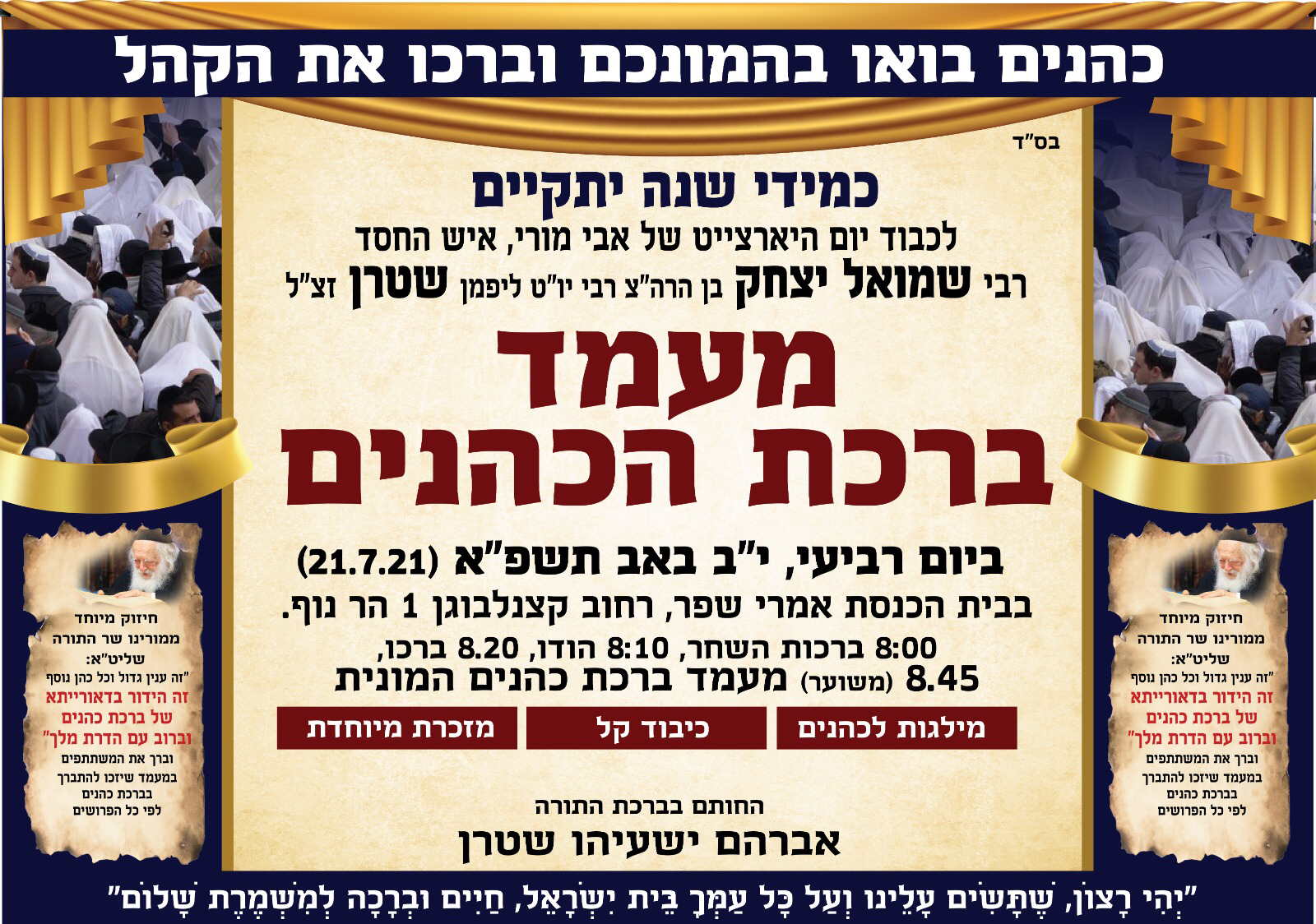
"Blessed be Hashem, I merit to stand and be the chazzan who reads the blessing words to hundreds of Kohanim," Rabbi Stern tells us. "This privilege moves me deeply each time again."
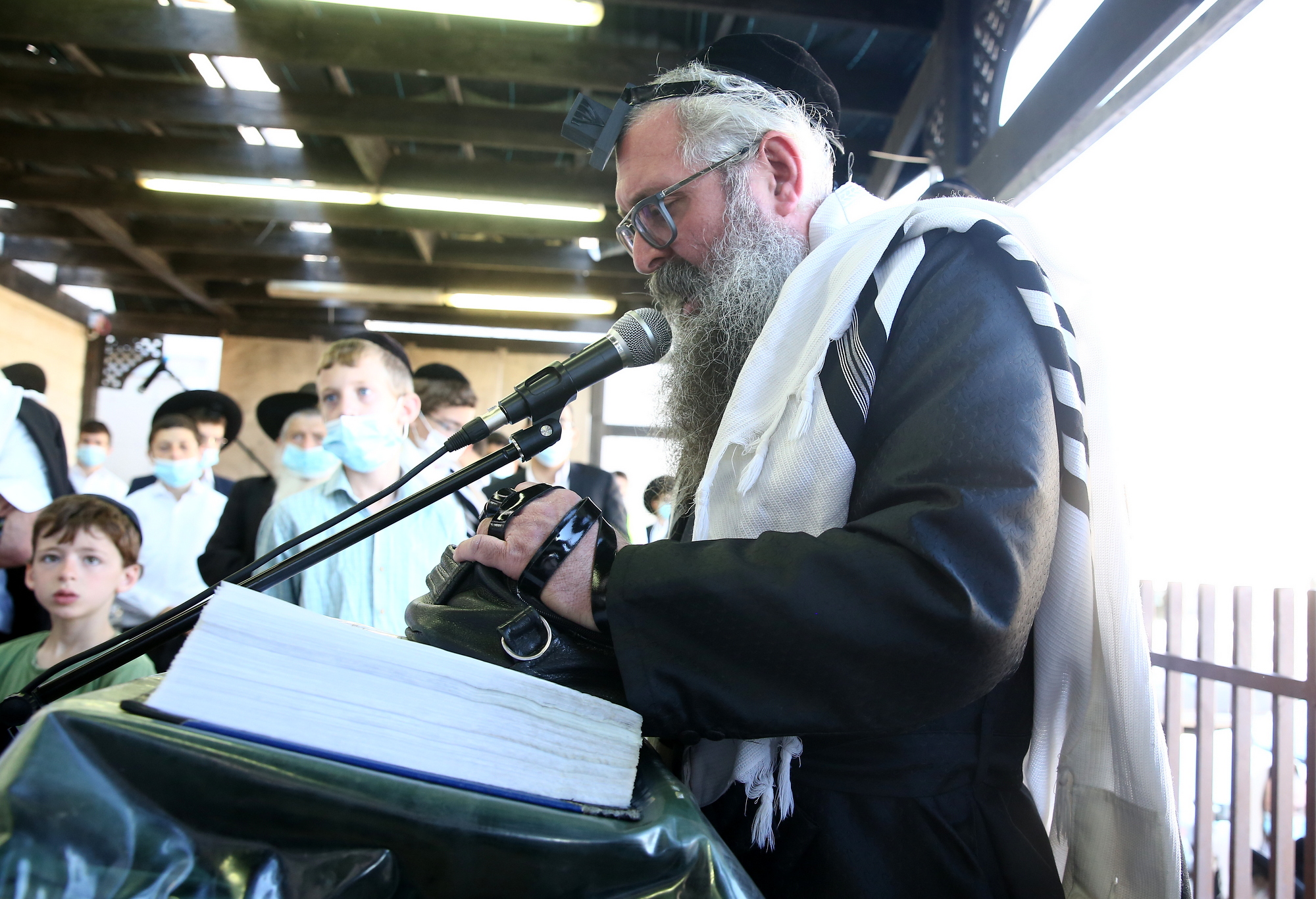 (Photo: Ezra Landau)
(Photo: Ezra Landau)"With all the surrounding technical organization chaos," he shares candidly, "once I stand in front of the sidur, next to hundreds of Kohanim wrapped in their *tallitot*, tears always escape from my eyes with emotion. This wonderful event, in which we take part in a heavenly blessing transmitted simultaneously by hundreds of Kohanim, and indeed, by Hashem Himself. The Shechinah stands above the Kohanim; hence, one should not gaze at their hands during the blessing. Participating in such an event, one can't help but sense the electric atmosphere."

